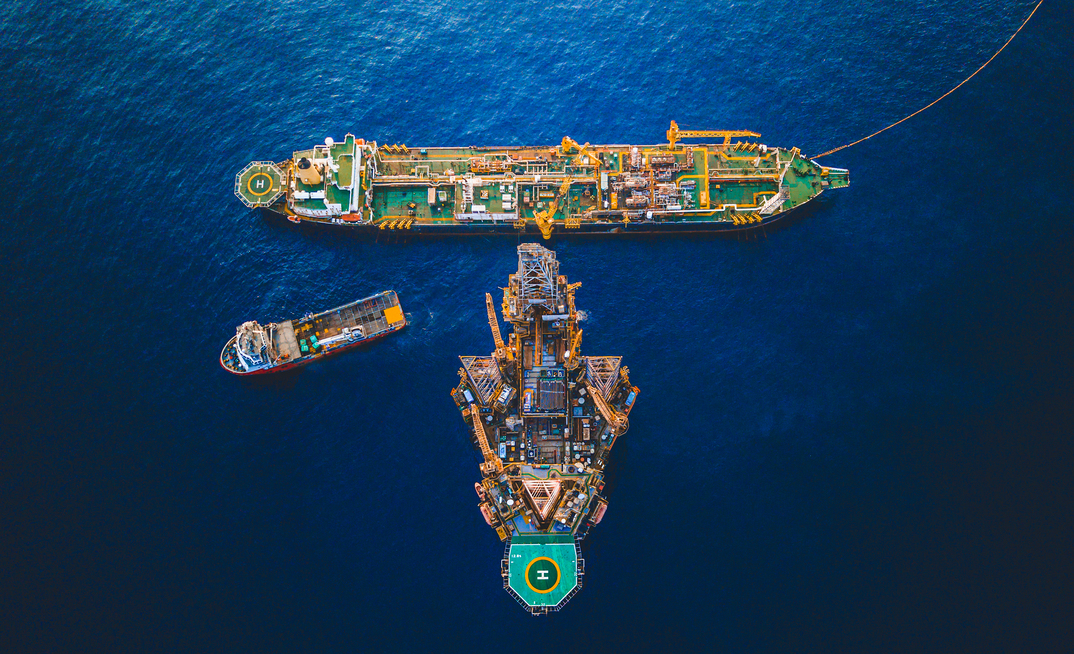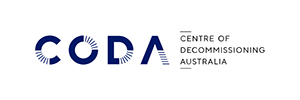CODA, or the Centre of Decommissioning Australia, has had a short but fairly dramatic rise in stature since the not-for-profit was established a AOG in 2021.
At the 2023 event, CODA will be a standalone exhibitor and has a substantial role in providing speakers for the two decommissioning sessions on day one.
Managing director and CEO Francis Norman explains that CODA was born out of NERA, the acronym for National Energy Resources Australia, an organisation for which he worked for about six years after three decades as a working as and managing engineers.
"We have gone really quickly from a standing start to where we are now. But because of our focus on decommissioning and the scale of the upcoming workload we saw an urgent need to establish as a standalone organisation to allow us to foster the growth of the industry," Norman said, adding that CODA is a proudly independent organisation where its independence allows it to act as a trusted connector across all facets of the industry.
"We have always known the work was coming but timing was quite uncertain. But there was growing recognition that the time was now, and we realised that the volume of work was very substantial," said Norman.
There was a realisation that information sharing was essential so that the industry would be ready for it when decommissioning time came.
And that time appears to be now, with Norman highlighting a liability study commissioned by CODA which showed that based on the work undertaken by their consultants, there is $US40 billion of decommissioning coming up in offshore work alone, and in Australia about 50% of that, or $20 billion, is expected to be commenced in this decade.
Norman says that this is $20 billion of work in an industry in which experience is limited. "These volumes may come as a bit of a shock to the system. We have seen ongoing decommissioning work in the mining sector as facilities close and small volumes of ongoing oil and gas decommissioning, but these volumes are different. We also have a workforce and service sector here that has traditionally been focussed on big new oil and gas projects so changing gears to decommissioning can be challenging.
"So, we were trying, as much as possible, to get ahead of the curve, to start having the conversations before the pressure gets to us, identifying and supporting local solutions as well as attracting expertise from overseas companies that have technological solutions to the new challenges we will face."
On a philosophical note, Norman believes that some view decommissioning as ‘reverse engineering'. "It is anything but. Tongue in cheek, I liken it to a hole in the wall. If you want to fill that hole, you don't just put the drill in reverse and back it out!"
Commercially, decommissioning is a completely different beast. "In every other phase of a project, you are developing it to produce revenue. But decommissioning is a cost to a business that will not generate revenue. Consequently, the cost models are different, with many organisations exploring different approaches to contracting and execution of the work."
"But there's an upside: if you do it well, right, efficiently and to best practise, you can minimise your risks, costs and also have the opportunity to recycle, repurpose and reuse the vast majority of the material that was installed in the first place."
Norman says that decommissioning's best practise will result in between 95% and 98.5% of the material that gets removed will be recycled.
Norman says that one of the key gaps in the pursuit of decommissioning is a place to process equipment brought in from offshore.
Historically, Australia has not built much of its offshore facilities, with the great majority manufactured in other countries then deployed in Australian waters, as a result we don't have decommission facilities such as those found in Europe.
That may be changing, at least in Western Australia. This month, CODA will be awarding a contract for a consultant to evaluate where the best place in the state would be to establish decommissioning facilities. This work has been enabled through support from the Western Australian government.
Norman believes that once such facilities are established, they will open up opportunities for secondary industries for the recycling of material, for cleaning, maintenance and everything else that goes with decommissioning.
"Our figures show that we may have around 120,000 tonnes per annum at peak of material needing to be removed. About 70% of that is steel and the next largest one is potentially concrete, and then you have all the other materials, including polymers and plastics, copper and everything else.
"Almost all of that is recyclable and once we have got all this onshore, we can put it to its second or third life. It will generate local long-term employment in many different areas.
"So, wherever you locate this facility, there is likely to be anywhere between 50 and 100 jobs created to do all the field work, the dismantling and maintenance."
Once a suitable site is established, the next tick-box if finding the right skills for the work to be done. With at least a portion of these roles being in the regions and often offering opportunities to local who may previously have had to travel for work.
Norman says that in terms of skills, CODA anticipates there may be a need for short courses and credentials for workers transitioning into decommissioning from other roles in construction or maintenance, with the training filling in knowledge and skills gaps.
Many already working within the oil and gas sector could find a home in decommissioning as it forms part of an almost ‘greener' side of the business in terms of ESG, recycling and climate change. "So, yes, it is still working within the oil and gas industry but it is cleaning up at the end of the lifecycle," Norman said.
Back to the present, with the AOG Energy conference, which will take place at the Perth Exhibition and Conference Centre from March 15 to 17.
"We are the conference's decommissioning partner and will have a dedicated stand of our own. We are co-ordinating two hours of the conference program and will have international speakers talking about how decommissioning is being executed elsewhere in the world. And we also will have speakers addressing what we need to do to grow the industry efficiently here," Norman said, who honed his advocacy skills as a past WA president of Engineers Australia.
"There is a lot of interest around the world in the work we are doing. At the recent conference I attended in Stavanger, I was the only non-European speaker and there was a huge amount of interest in the work we have coming up in Australia," said Norman, citing expressions of interest from service firms, technology companies and even some of the operators.
ABOUT THIS COMPANY
CODA
CODA: Centre of Decommissioning Australia
HEAD OFFICE:
-
Address: Spaces, Level 2 East, The Wentworth Building, 300 Murray Street, Off Raine Lane, Perth, Western Australia, 6000
- Email: contact@decommissioning.org.au
























